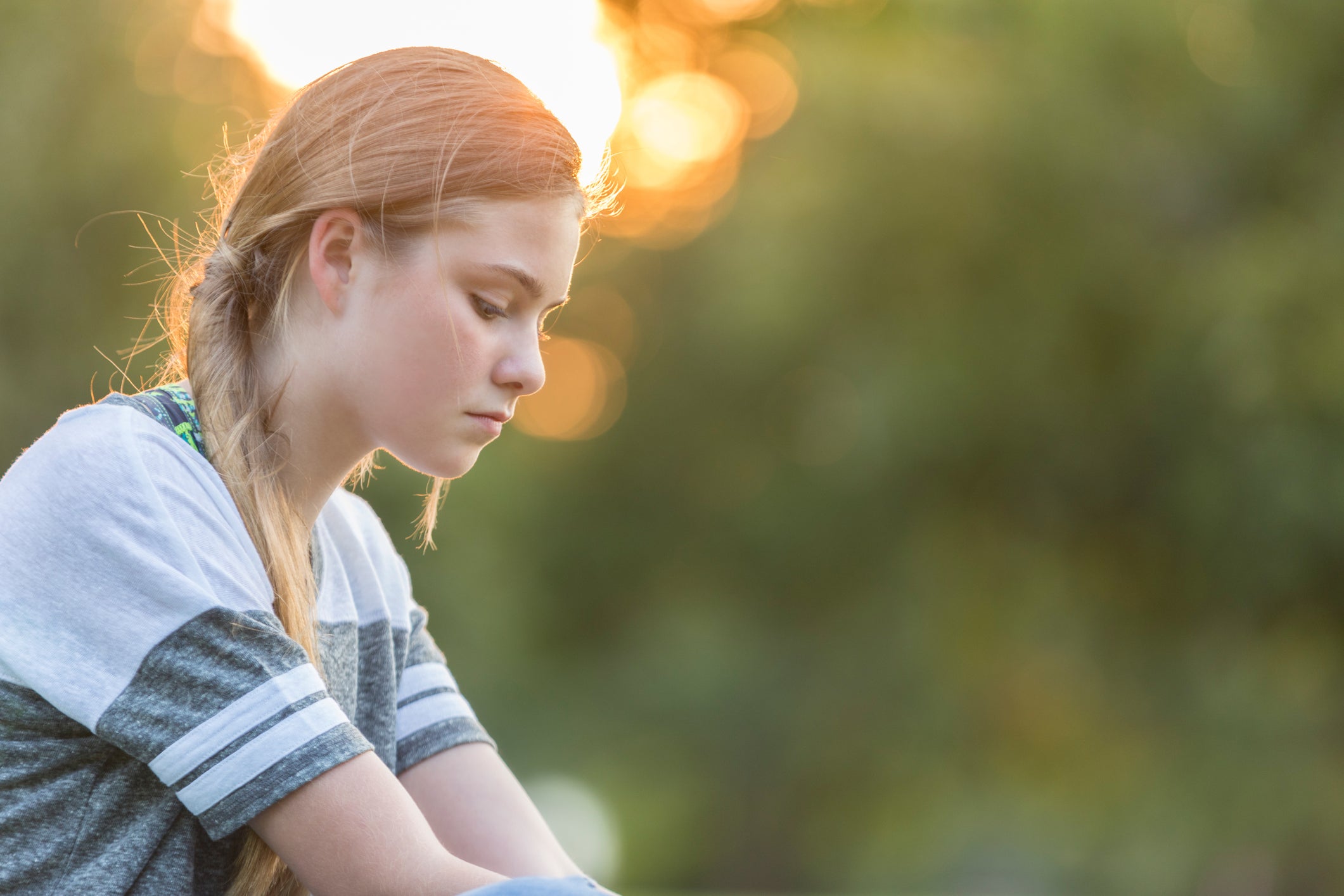Happiness levels of girls and young women have dropped drastically in a decade, new research reveals
Social media is one of the main causes of stress, as outlined by the study

Exam stress and the pressures of social media have made girls and young women feel far less happy than they did 10 years ago, a new study has discovered.
Over the past decade, social media platforms such as Facebook, Twitter and Instagram have boomed in popularity, with the average Brit becoming so dependent on their smartphone that they check it 28 times a day.
This fixation on social media has taken its toll on the mental health of many girls and young women, as outlined by research conducted by charity Girlguiding.
According to the organisation, only a quarter of girls and young women aged between seven and 21 years old would describe themselves as very happy.
This is a stark contrast to the 41 per cent who said the same thing in 2009.
Furthermore, 59 per cent of girls and young women aged between 11 and 21 years old said that social media is one of the main causes of stress among girls in their age group, with 69 per cent attributing the pressure of taking exams and tests as the main reason for stress.
Girlguiding surveyed 1,903 girls and young women aged between seven and 21 between March and May this year as part of its research.
The charity then compared the answers that they received to previous questionnaires that it had conducted over the past 10 years.
The findings from the new research have highlighted the impact that stress can have on the mental health of girls and young women, with 50 per cent of the participants aged between 11 and 21 saying that feeling unhappy negatively affects their health.
Amanda Medler, chief guide at Girlguiding, says that action needs to be taken in order to take better care of the mental health of girls and young women who are regularly feeling unhappy and stressed.
“The message could not be clearer from girls and young women about the seriousness of the issues they’re facing daily and the negative impact on their lives,” Medler says.
“It’s not good enough that today girls are unhappier and more of them are experiencing problems with their mental health than in previous years.
“So now is the time for action, to listen to girls and respond, and for all organisations, government, schools and parents to work together to improve the lives of all girls and young women.”
Izzy, a 17-year-old member of Girlguiding’s advocate panel, believes that girls who are feeling unhappy need to be reassured that their voices will be heard and taken seriously.
“The research from the last 10 years doesn’t paint a great picture for girls and young women, but it’s reassuring to see some positive signs,” she says.
“Girls feeling more able to talk more openly about mental health makes me optimistic for the future, as does the increase in the number of girls who are speaking out on all issues.
“But the fact only 60 per cent of girls who spoke out felt their voice was heard and made a difference shows more needs to be done to ensure girls and young women are listened to by decision makers and the issues they raise are taken seriously, so they have the confidence to speak out and know their views and opinions matter.”
Join our commenting forum
Join thought-provoking conversations, follow other Independent readers and see their replies
Comments